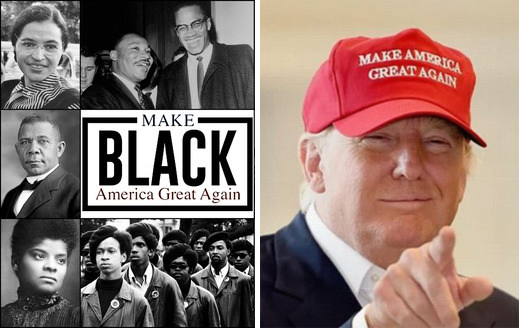“Every black American is bilingual. All of them. We speak street vernacular and we speak ‘job interview’.”
~
Is there is a difference between Black America and White America? For those of us who have resided in the U.S.A. the answer is simple. Some of my earliest childhood memories of the States involve my introduction into “American Culture” which, by and large, consisted of being forced to choose a side. Since my father was a strong black man and both my sister and I, like him, were copper-colored, for us, the decision was not much of a puzzle. Nevertheless, I can remember seeing other Asian-Black children, many of whom could’ve passed for my siblings, who preferred to associate almost exclusively with white kids. Although my list of friends transcended ethnic bounds, once I hit the teenage years, I rarely hung-out with anyone who wasn’t “down by law,” which was our lingo for being “from around the way” or “from the hood.”
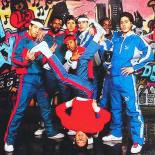
Mind you, this was not due to any feelings of hatred or animosity but, rather, it was because back in the 1980s, the culture of Hip Hop was really taking-off and, at this point, it was a Black and Latino “member’s only” club. In Philly and Jersey, the black-white divide manifested itself in virtually everything that was interesting to youngsters. Musically speaking, Funk, Disco, and R&B were the genres considered as black music prior to Rap being played on the radio. “Disco sucks!” is what the white kids wearing the black-and-white Led Zeppelin and Pink Floyd t-shirts used to scream at us—which confused me because all-white groups like the Bee Gees or black/white mixed groups like KC and the Sunshine Band had been very popular. This was the first time I noticed the dual nature of American society; after all it’s everywhere from Democrats vs. Republicans, Right-wing vs. Left-wing, Liberal vs. Conservative, etc. Of course, I didn’t become conscious of all this until later in life. As a kid, what caught my attention was how even amongst whites themselves, they were organized into opposing factions. The “whiteboys” who got stoned at keg parties to Heavy Metal were cool with the kids who zoned-out to Classic Rock but, together, they had formed an alliance against the whites who liked disco. I remember they used to speak very condescendingly, even labeling them as “Nigger-lovers.”
Realizing how deep the black-white divide in America was really blew my mind!
From that point, I was careful to align myself, in all activities, according to the established rules. And this would become important once the TV series, Roots, came out because whiteboys around my way started to get beat-up on a regular basis. The racial schism was particularly noticeable in school, where the only certified black activities were sports. But only some of them. Starring on the basketball, football, or track team could earn you a whole lot of cool-points while, at the same time, being a member of the baseball, soccer, or lacrosse team came with a “whiteboy” label stitched to the uniform.

Even in regard to simple pastimes like playing-cards the contrast existed. In the hood, blacks played Tonk or Spades but whenever we happened to be on the “other side of the tracks” we had to settle for Go-fish, Gin-rummy, or Poker. As a young adult, I’ll never forget how surprised I was to see a group of Italians shooting “craps” because I had never seen whites—if we can call Italians white—shoot dice before; whereas on the other hand, everyone knows brothers love playing Cee-lo as much as whites enjoy a good game of Monopoly or Scrabble.
To this day, I still hate Scrabble!
Nowadays, segregation and other forms of unfair bias are frowned upon in the media. Any person or corporation accused of practicing racism or sexism can be fined or imprisoned, not to mention have their character assassinated in the media. With such harsh penalties in place, it is natural to believe that acts of racism would gradually diminish or, at minimum, they would have to be concealed. Unfortunately this does not seem to be the case.

From Black Lives Matter, to the murder—not simply death—of Botham Jean, and even the Bill Cosby case, 2019 was saturated with clear, black-and-white instances, pun intended, of the black-white divide. No longer do I allow myself to be lured into debates as to whether or not racism still exists (this was a popular distraction during the Obama Administration). Back in the 1960s, President Lyndon Johnson assigned the National Advisory Commission on Civil Disorders with the task of assessing the causes of civil unrest in Afro-American communities. The Kerner Commission Report, which was a compilation of data on the specific economic and social inequities confronting blacks, was presented to the president in 1968. Last year, Janelle Jones, John Schmitt, and Valerie Wilson of the Economy Policy Institute published 50 Years after the Kerner Commission in order to assess the nation’s progress during this time. What did we learn? For someone like me who, at one time, believed the system of racism/white supremacy was gradually weakening or, at least, that blacks were, little-by-little, gaining a foothold in the American Dream, this quote jumped out at me:
“With respect to homeownership, unemployment, and incarceration, America has failed to deliver any progress for African Americans over the last five decades. In these areas, their situation has either failed to improve relative to whites or has worsened”
~Kerner Commission Findings
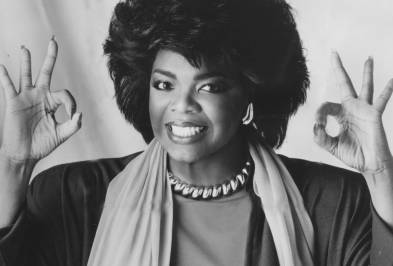
Okay? or White Power?
Okay? or White Power?
A “White Zaddy” Complex?
Last spring, talk-show host, Oprah Winfrey, decided to dig-up from the grave if not the most famous person of all time, definitely the most successful music artist. Dubbed the “King of Pop,” Michael Jackson (1958–2009) was the recipient of 13 Grammys, 26 American Music Awards and 1 innocent verdict on 14 counts when he was accused of sexual molestation back in 2005.
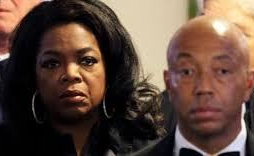
Leaving Neverland is the HBO documentary series which Oprah claims was important enough for her to endure what she called “hateration” from social-media—even amongst her fans—because she “never wavered in her beliefs” about what happened in MJ’s rape allegations. This, in spite of all the evidence pointing in the other direction. Well, her crusade to hunt-down and smear alleged sexual-predators has taken on new life, literally, in the sense that her latest victim still has a pulse. And once again it’s another black man.
“I don’t understand why Oprah is going after black men. No Harvey Weinstein. No Epstein. Just Michael Jackson and Russell Simmons…this shit is sad!”
Since the announcement of Oprah’s latest documentary, aside from being criticized by rappers like 50 Cent and The Game, her actions have been straight-up slammed by many including the Source magazine. To my knowledge, Oprah has yet to make a public statement; but regardless of whether you’re in Oprah’s corner or not, one thing cannot be denied; yes, that’s right, you guessed correctly. Once again we’re brought right back to the black-white issue as Oprah, a black woman, is ignoring the Epsteins and the Weinsteins, who are white men, in favor of running slander campaigns against black men.
Proud to be Black?
“Beyond the color of your skin and the texture of your hair, what distinguishes YOU from others?”
Recently, I’ve been asking melanin-rich people who I encounter in Japan if, in fact, they’re proud of their ethnicity/culture. In spite of the overwhelming, almost immediate claims of “Yes!” many of these prideful people are much less enthusiastic to explain the source of their pride—i.e. exactly what they’re proud of. Question: If there is nothing which distinguishes someone in terms of mannerisms, culture, speech, or diet from the majority population, can it be said that such a person is “proud of their culture?” Please understand I am not of the mind that everyone has to be a revolutionary who wears a symbol of their race on their sleeve. That said, these days, the standards have become so lenient and loose, there are now whites who are “transforming into black,” not to mention those who have demonstrated nothing but ill-will and vitriol toward blacks, who are seeking to become our leaders.
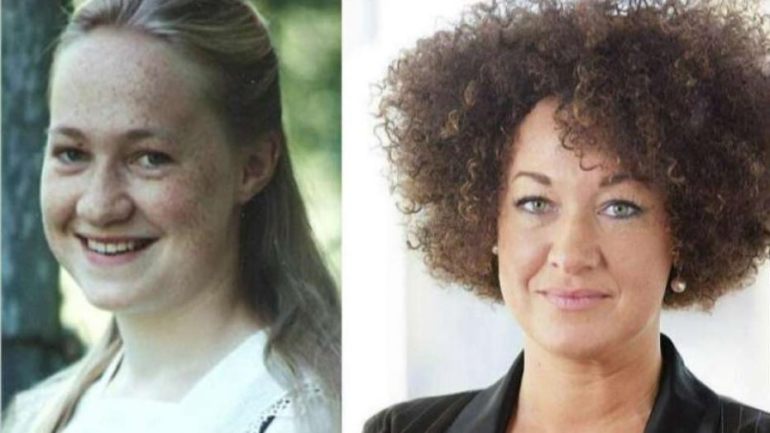
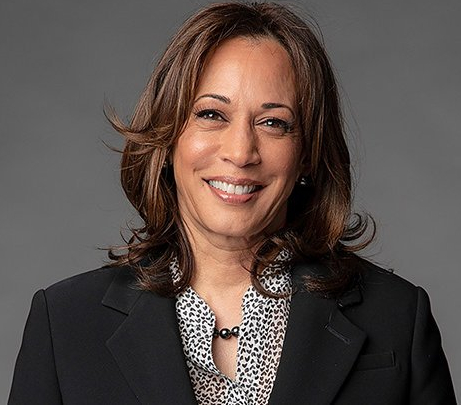
Teaching American Culture in Japan
Since the Japanese vs. Foreigners dichotomy prevails in Japan, it’s not difficult to introduce the idea of a mainstream, ruling class existing in the U.S. While explaining this nuance of American culture, I also make sure to slide-in the fact that, for the most part, the average Japanese person’s image of the U.S. is restricted to White America. A good example of this is whenever I encounter one of those Self-proclaimed English Experts among the Japanese populace. These Japanese, whenever talking to non-Japanese, demand to be spoken to in English and have a reputation amongst their own people for understanding everything there is to know about foreigners; so, as you can imagine, much of this notoriety depends on their ability to communicate with “gaijin” in English or they will lose face—especially in the presence of other Japanese.

I have coined these annoying people as “J.S.P.E.X.” Since they fancy themselves as experts, in my opinion, it’s unacceptable how most of them still take it for granted that everyone from western nations follows mainstream culture such as eating hamburgers and french fries on a regular basis. Hmm, on second thought, this might be a notch up from the stigma of fried chicken and watermelon! At times, over the years, certain J.S.P.E.X. have confused me for someone they can nonchalantly strike up a conversation with about their favorite episode of Modern Family or Friends. Although I don’t get angry, it’s a slap in the face. Come on, at least get your stereotypes right and come at me with Empire!
Ebony & Ivory
“Side by side on my piano keyboard, oh Lord, why don’t we?”

In spite of being the most vilified president in history, he has been able to hold sway by convincing the ruling class to stay on-code. While it may seem there is some dissension among his troops right now, if you think about it, considering that blacks and other groups have had virtually nothing to do with Trump’s impeachment—just like we had nothing to do with his election in 2016—this may just be a smoke & mirrors tactic to distract the public as the Republicans muster for a push at the next election. At any rate, many seem to think so. Tariq Nasheed put it like this: “This (impeachment) has no impact on us whatsoever. Look for the Tea Party and other Trump supporters to ‘circle their wagons’ and galvanize around Trump…and don’t be surprised to see him win again in 2020.” What do you think?
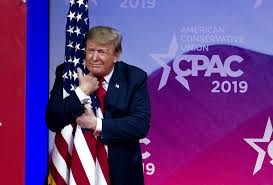
Takuan Amaru is the author of Gaikokujin – The Story.

